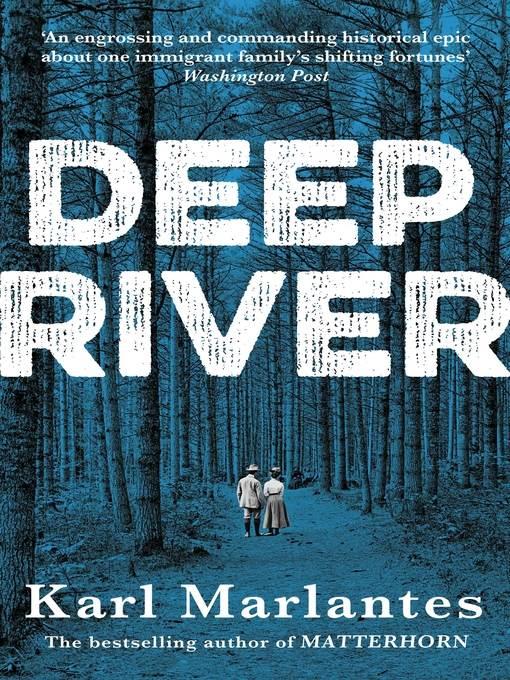
Deep River
- اطلاعات
- نقد و بررسی
- دیدگاه کاربران
نقد و بررسی

May 6, 2019
Inspired by family history, Marlantes (Matterhorn) offers a sprawling, painstakingly realistic novel about Finnish immigrants in the Pacific Northwest during the first half of the 20th century. The saga begins in 1891 Russian-occupied Finland, when tenant farmers Maíjalíisa and Tapio Koski lose three of their six children to cholera. Six years later, their oldest surviving son, Ilmari, now 18, departs for America. By 1903, he owns a farm and blacksmith shop on Washington’s Deep River and dreams of building a church. Brother Matti joins him, and soon Matti is working as a logger and dreaming of starting his own company. Seventeen-year-old sister Aino arrives last, fleeing Finland after being tortured for revolutionary activity. In America, she campaigns for the Industrial Workers of the World. During the 1920s, as IWW activity is suppressed, Aino is separated from her family and even spends time in a Chicago jail. Meanwhile, through the Depression, the Koski siblings put considerable energy into a variety of enterprises including Sampo Manufacturing (timber) and Scandinavia’s Best (salmon). Their perseverance despite hard times and conflicts exemplifies Finnish “sisu,” a combination of determination, courage, tenacity, and endurance. Vasutäti the Chinookan basket-weaver/healer, Aksel the fisherman/bootlegger, and Louhi the whorehouse/saloon financier, provide assistance. Marlantes’s epic is packed with intriguing detail about Finnish culture, Northwest landscapes, and 20th-century American history, making for a vivid immigrant family chronicle.




دیدگاه کاربران